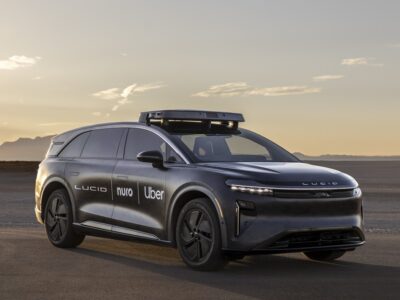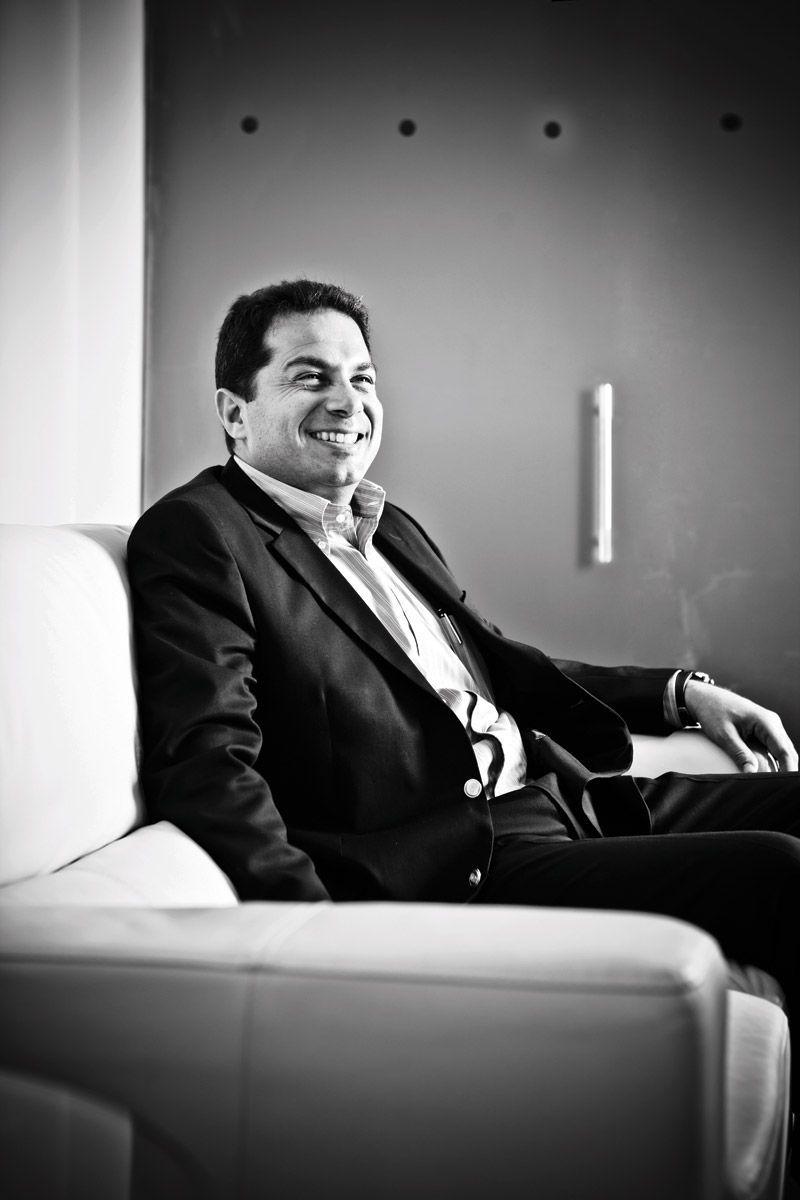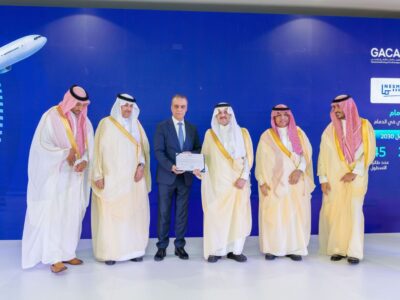Alex Saber likes to talk in figures. And the figures are pretty good: the biggest media agency in the Middle East for the last decade; a 24 percent share of the region’s advertising market; a 38 percent chunk of all spending in digital; 380 staff on the books — and zero let go since the recession.
No wonder the VivaKi chairman has a smile on his face. “Everyone has been under pressure, and clients have become more demanding. So it means only the fittest are surviving. That’s why you see our business in such good shape,” he says.
Few would argue with that. VivaKi is home to two of the world’s largest digital specialist agencies (Digitas and Razorfish) and two of the world’s largest media communications companies (Starcom Mediavest Group and ZenithOptimedia). Part of the Publicis Groupe, the world’s third largest communications group, there has been little — not even a huge downturn — to knock VivaKi off its tracks. Its client list reads like a who’s who of the world’s biggest multinationals, including Proctor & Gamble, Kraft, Mars and Samsung. Combined with regional-based giants such as Emirates Airline, Saudi Telecom and Al Wataniya, there has been plenty to keep his 370 staff more than busy. Even the recent loss of the lucrative General Motors account hasn’t resulted in any redundancies, though Saber is still cautious about the future.
“Is the worst over? Yes, the worst is, but that doesn’t mean things are all shiny and sunny. Things are not clear there is a lot of uncertainty and there are many issues at hand. There is what’s happening politically in the region — and let’s not forget what is happening in Europe and US. Most of our clients are multinational so whatever happens in the US or Europe filters down to this part of the world — the majority of our clients are doing very well in this part of the world but they are still affected,” he says.
Nevertheless, the figures paint a fairly sunny picture. Based on monitored billings by IPSOS, VivaKi had a near $2 billion share of the region’s $7.4 billion TV advertising market, equating to 27 percent. In radio advertising, Saber’s team accounted for $61 million of the expenditure — a quarter of the total market, and a healthy 16 percent — $295 million — of print advertising.
So what’s been the secret? “To be honest, it wasn’t a case of having to make a huge new focus after the crisis came in 2008. We didn’t do anything different. We’re adapting to change and new strategies and opportunities, but it’s not like it was a shake-up for us. Yes, we had to be more cautious and conservative but we didn’t lose a single person. Our staff grew to 380 as a group in MENA that’s 50 percent up. In 2007, our monitored billings were $1 billion, now they are $2.7 billion, so you can see that there has been considerable growth,” he explains.
Of course, everyone in media knows that monitored billings are completely different to actual billings, which are arguably more than 50 percent less. But the trend is clearly impressive. Under Saber’s watch, the group has expanded into Iraq where it has opened two new offices, and in Egypt has doubled its billings since the start of the Arab spring.
But the real action could yet be in the digital arena, where advertising spend is increasing by around 25 percent a year. The figures though, are still, according to Saber, relatively small.
“Digital is still small in this part of the world and we are way behind the markets in Europe and US. It is changing and digital billings are growing but there are many challenges. Mobile penetration is huge but mobile advertising is new in this region and internet penetration is still small relatively. Also advertisers still believe that offline media is more efficient and has more impact on their business,” he says, adding: “Yes things are changing but in a slower manner than other markets. We do expect digital will continue to grow but traditional media like TV is strong in this part of the world.”
But isn’t digital media meant to be the great leap forward, the product that will forever change the industry? Two years ago, Pepsi ditched its traditional $20 million expenditure on a commercial during the US Super Bowl, choosing instead to invest in social media. The decision was the start of what was seen as the first of a big shift towards digital.
Article continued on next page
Saber though says there is still a long way to go before the Middle East fully embraces digital advertising. “At the end of the day, the consumer doesn’t say now I’m going to be digital — he might be watching TV, working on his laptop and having his phone next to him. The challenge is integrating all these forms of media, and I think there is some way to go yet in doing that.”
There is no shortage of more immediate challenges on Saber’s plate. Under his leadership, VivaKi has continued to diversify its business model, adding a string of new divisions. Take for example the “VivaKi Nerve Centre”, which the company says is “the world’s largest research and development centre, dedicated to creating new technologies and approaches that connect our brands’ Clients with their audiences in scalable, efficient and compelling ways.”
It has also added the VivaKi Exchange, a central trading desk platform that manages large-scale traditional and new media buying functions. It provides everything from pre-buy evaluation to post-buy reporting and analysis, and a full-suite of marketing and audience data.
Given his vast experience in so many parts of the industry, it’s no surprise that Saber doesn’t agree with Saatchi & Saatchi CEO Kevin Roberts, who three years ago described the region’s creative industry as “crap.”
“You can never say this. We have won major awards locally and internationally, as has our sister company Leo Burnett. We are proud of what we are delivering. Is it crap? Absolutely not,” he says.
Still only 45 years old, Saber himself is very much a veteran of the industry. His career started in 1991, working as a media executive in Leo Burnett (a sister company of VivaKi), working on bookings and media planning. “I wanted to work in marketing, and there was no VivaKi in those days. There was no buying agency. There was a media unit in a creative agency, we were at a corner and the creative people got all the attention. We were the back stage.”
He didn’t stay at the back too long. Seven years later Starcom Mediavest was created and Saber went to the new operation, spending a four-year stint in Saudi Arabia. Following the creation of VivaKi as the umbrella company, he became CEO in 2007, before taking over as chairman last year.
“I was always ambitious but my strength is knowing the details. I have worked on everything and I know the business inside out. I have touched every department. The pressure is tough. I am a detail-oriented person, I am not an honorary chairman – I get deeply involved in the business. Some people do not realise that the more senior you are, the more weight you have on your back. We have 370 staff, which means I am responsible for 370 families — that is maybe 2,000 people. There are 370 families here, that 2,000 people that you are responsible for,” he says.
But having been at the same company for more than two decades, is he not tempted to do something else, possible run his own show one day?
“I enjoy what I do. I t is tough and challenging and long hours. Maybe at one point in time I will want to do my own thing but this is not the right time. This is my home.”
Article continued on next page
How to spot talent The Saber way
Working in a creative industry, it has always seemed incredibly obvious to me that a company’s success depends on its people and the quality of their ideas.
But this way of thinking has only recently started making headlines. Anyone who followed events at the 2012 World Economic Forum in Davos will know that ‘talentism’ is the new ‘capitalism’. We are witnessing the birth of the ‘Human Age.’ Jeffrey A. Joerres, chairman and CEO of Manpower Group describes how early eras were defined by the raw materials that transformed them — the Stone Age, Bronze Age and Iron Age. Following this, they were characterised by the domains people conquered with ever-improving technology — the Industrial Age, Space Age and Information Age. Now we’re entering a new age — the Human Age — where access to the right people, with the right skills, in the right place, at the right time, has replaced access to capital as the definitive competitive advantage.
The reason for this is clear. In a world that has been squeezed out of shape by the combined forces of recession and revolution, companies have been forced to constantly streamline and redefine, under ever increasing pressure to do more with less. While some companies have buckled under the weight of these demands, others have outperformed all expectations, in spite of the challenging environment. Some of today’s most successful companies emerged during times of crisis — Proctor & Gamble, General Electric, FedEx, IBM and our sister agency Leo Burnett , for example. The key differentiating factor in their success has been the presence of skilled individuals who have thrived amidst the chaos and led their companies to unprecedented success.
As the dust of the global turmoil settles, and companies learn how to function in this new business landscape, the need to employ, retain, and develop the best and the brightest is being recognized across the board.
So what kind of talent are we looking for? ‘Pop Idol’ and ‘Arab Idol’ make it look easy to spot and celebrate winning talent. But first we need to define what we want from our ‘Employee Idols’. As organisations, need a clear understanding of the individual’s career motivators and compensation requirements. Universal agreement and clear communication between all internal stakeholders is vital to ensure interviews and compensation negotiations are flawless. A muddled introduction and induction to the company is the most common obstacle to hiring strong candidates. We have an ‘Employee Idol’ formula of sorts at VivaKi; we look for open minds, non-conformists, ‘people’ people, and digital talent.
As a market, we are lagging behind other developing/developed countries in terms of our interest in the digital space, and of those who can work within it. We are increasingly reaching that tipping point in a number of key markets whereby digital penetration and digital consumer consumption is not aligned with advertising investment.
McKinsey recently released a report highlighting what they describe as a ‘digital talent time bomb’. It explained that the exponential growth in data and the increasing focus on analytics and owned media mean the capability of analysing large data sets will become “a key basis of competition, underpinning new waves of productivity growth, innovation, and consumer surplus”. The report concluded that there will be an inevitable global shortage of talent necessary for organisations to take advantage of this opportunity. As a region we have a digital talent shortage right across the industry — in broadcast, in creative and in marketing departments. Never have we been so interconnected, so reliant on each other and where digital expertise has become an invaluable commodity across every marketing discipline.
At VivaKi, we understand the need to grow digital and the need to grow our knowledge base right across the agency. In today’s world everything communicates and that’s increasingly via digital platforms. For this reason we embarked and achieved a goal to have the entire company digital ready by 2011 year-end. This means that every employee across every operational discipline understands digital and what it means to the growth of our clients’ businesses.
Retaining and developing talent internally takes time and a strategic systematic approach. A recent report by the Boston Consulting Group found that over 50 percent of top-performing organizations (measured by revenue and growth over past three years) have already established an integrated strategy to recruit, develop and retain suitable talents, in contrast with only 27 percent of less successful companies.
From the chairman down, those in senior positions should influence the value placed on talent management. Without the vision of the upper management, talent will be left without the impetus to grow. At a time when talent is so vital in the equation for success, nurturing and developing any and all potential is the surefire way to thrive.








